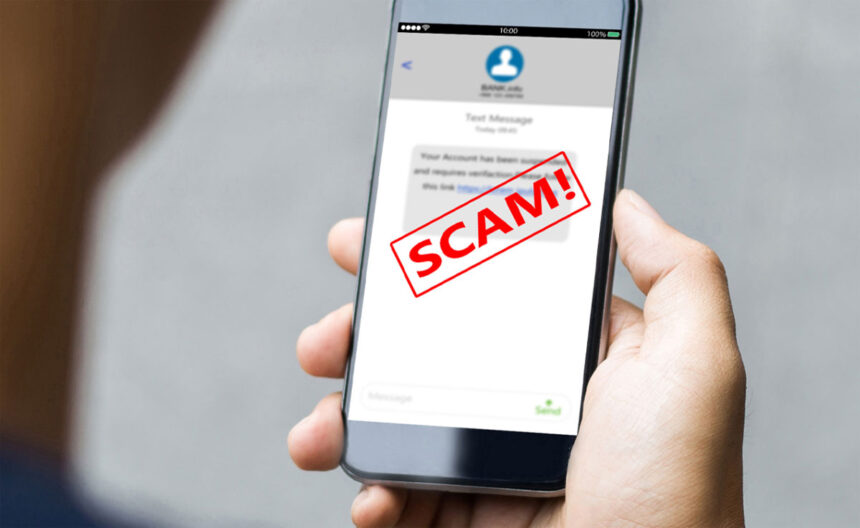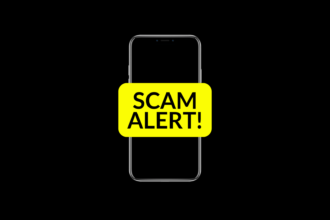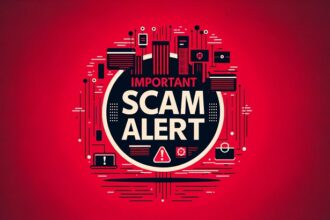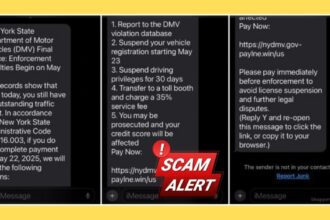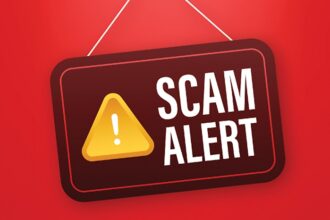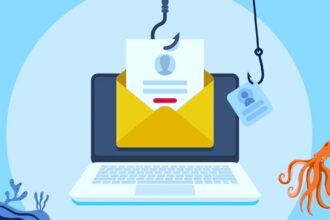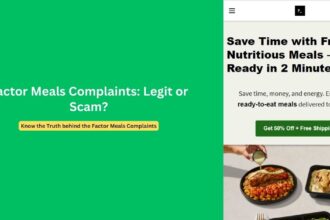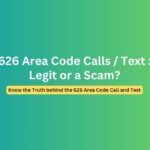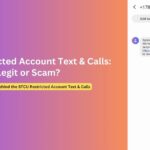North Carolina residents are increasingly being targeted by sophisticated text message scams claiming to be from “NCHighPass,” a fictitious toll collection service designed to mimic legitimate operations like NC Quick Pass. These fraudulent messages demand payment for supposed “unpaid tolls” and threaten severe consequences if recipients don’t comply immediately. The scam has become so widespread that the North Carolina Department of Transportation (NCDOT) and law enforcement agencies are warning citizens to remain vigilant against these deceptive communications.
Official Warnings About the NCHighPass Text Scam
The North Carolina Department of Transportation has issued warnings about these fraudulent messages. NCDOT officials have emphasized that legitimate toll notices in North Carolina come from NC Quick Pass, not “NCHighPass,” and are sent primarily through postal mail, not text messages. Law enforcement agencies across North Carolina have confirmed these messages are scams and advised residents to ignore them.
These official warnings align with a nationwide trend of similar scams targeting residents in multiple states. Transportation authorities in South Carolina, Michigan, Kentucky, Ohio, Florida, and other states have issued similar alerts about toll-related text scams in recent months, indicating this is part of a coordinated nationwide phishing campaign. Each version uses slightly modified names that sound official but aren’t legitimate government entities – such as “Drive KY GOV” in Kentucky and “SCDMVonline” in South Carolina.
Overview of the NCHighPass Toll Violation Notice Scam
The NCHighPass toll scam is a sophisticated phishing attempt designed to steal personal and financial information from unsuspecting victims. Scammers send text messages claiming to be from “NCHighPass” about unpaid toll violations, creating a sense of urgency and fear to manipulate recipients into clicking malicious links and providing sensitive information.
What makes these scams particularly concerning is their increasing sophistication. Recent versions include fake websites that mimic official government pages with remarkable accuracy. Victims report that the fraudulent websites look nearly identical to the legitimate NC Quick Pass payment portal, complete with official-looking logos, color schemes, and layouts.
The scam exploits the existence of legitimate toll systems in North Carolina, particularly the NC Quick Pass system used on toll roads such as the Triangle Expressway and Monroe Expressway. However, genuine toll violations from NCDOT are communicated through official mail, never via urgent text messages demanding immediate payment under threat of severe penalties.
How the NC High Pass Toll Scam Works
The NCHighPass toll scam follows a calculated pattern designed to create urgency and fear while harvesting sensitive information:
- Initial Contact: Victims receive an unsolicited text message claiming to be from “NCHighPass” about unpaid toll violations. The message may appear to come from an international phone number, often from the Philippines (+63 country code), or a spoofed local number.
- False Urgency: The message creates immediate stress by using phrases like “final notice” and “immediate action required,” typically giving only 12-24 hours to respond before severe consequences.
- Specific but Small Amount: To appear legitimate, the scam typically cites a relatively small, specific amount (usually between $6-$15) that seems plausible enough not to raise immediate suspicion.
- Severe Threats: The message threatens disproportionate penalties, including:
- Immediate late payment fees
- Suspension of vehicle registration
- Legal action by the DMV or NCDOT
- Negative credit reporting
- Collection actions
- Possible vehicle impoundment
- Deceptive Links: The text includes a link that appears official but directs to a fraudulent website. These domains often use variations that include “nchighpass” but with additional elements (like nchighpass.com-xyz.top).
- Convincing Fake Website: When clicked, the link leads to a sophisticated replica of the official NC Quick Pass website. Victims report that these fake sites look nearly identical to the real payment portal.
- Unusual Instructions: Many versions ask recipients to reply “Y” or perform specific actions like exiting and reopening their messaging app to “activate” the link, which serves to confirm that the phone number belongs to an active user.
- Data Theft: If a victim clicks the link and enters their information, scammers capture sensitive data including credit card details, security codes, and personal information that can be used for identity theft or fraudulent charges.
One recent victim from North Carolina reported on social media that after clicking a link from an NCHighPass scam text, they were charged $100 twice within minutes of entering their credit card information. This highlights the immediate financial risk these scams pose beyond the potential for longer-term identity theft.
Text Message Patterns and Red Flags
The fraudulent NCHighPass toll texts follow recognizable patterns. A typical message might read:
“Final Notice – Immediate Action Required: Toll Delinquency This is your final warning. Your toll remains unpaid. If not paid by [Date], enforcement will proceed without further notice. You may face: Immediate suspension of your vehicle registration by NCDOT Court judgment and legal collection Damage to your credit score and public driving record Possible vehicle impoundment if found operating while suspended [Suspicious Link] Resolve it now to avoid irreversible penalties.”
Common Elements in NCHighPass Scam Texts:
- Urgent Language: Uses terms like “Final Notice,” “Immediate Action Required,” “Final Warning,” and “Last Opportunity”
- Severe Threats: Mentions vehicle registration suspension, court judgments, credit score damage, and even vehicle impoundment
- Vague Information: Rarely provides specific details about when or where the supposed toll violation occurred
- Short Deadlines: Typically gives only a day or less to respond
- Suspicious Links: Uses domains that may include “nchighpass” but with additional characters or unusual extensions
- Requests for Unusual Actions: Instructions to reply “Y” or exit and reopen messages to “activate” links
Red Flags in the Link and Website:
- Non-governmental Domains: Legitimate NCDOT websites use “.gov” domains or “ncquickpass.com”
- Additional Characters: Look for hyphens or random letters added to otherwise official-looking domain names (e.g., “nchighpass.com-hsgs.top”)
- Unusual Extensions: Instead of “.gov” or “.com,” scam sites may use unusual extensions like “.top,” “.vip,” or “.xyz”
- Request for Immediate Payment: Legitimate government portals typically provide multiple payment options and reasonable timeframes
One particularly concerning aspect of the NCHighPass scam is the high quality of the fake websites. Multiple victims have reported that the fraudulent sites look identical to the legitimate NC Quick Pass payment portal, making visual verification extremely difficult. This underscores the importance of checking the URL carefully rather than relying on the site’s appearance.
How to Identify an Fraudulent NCHighPass Texts
To protect yourself from the NCHighPass toll scam, be alert to these key indicators:
1. Fictitious Organization Name
The most obvious red flag is that “NCHighPass” is not a legitimate toll collection agency in North Carolina. The official toll collection service in North Carolina is called “NC Quick Pass.” Any message from “NCHighPass” is automatically fraudulent.
2. Communication Method
Legitimate toll violations in North Carolina are communicated primarily through official mail with proper letterhead and specific details about the violation. NC Quick Pass may send email notifications to registered customers, but these direct customers to log into their existing accounts through the official website, not through links in the email.
3. URL and Domain Verification
Always check the website URL carefully before entering any information:
- Legitimate NC toll website: www.ncquickpass.com
- Fraudulent examples:
- nchighpass.com
- nc-highpass.com
- nchighpass.com-xyz.top
- ncquickpass-payment.com
- Any domain with unusual extensions or additional characters after a hyphen
4. Contact Information Discrepancies
Check any contact information provided in the message or on the linked website:
- Phone numbers that don’t match official NC Quick Pass customer service number (877-769-7277)
- Email addresses that don’t use official government domains
- Addresses that don’t match official NCDOT office locations
5. Payment Method Requirements
Be extremely suspicious if the website:
- Only accepts credit cards
- Doesn’t offer alternative payment methods
- Doesn’t require account verification
- Doesn’t provide a receipt or confirmation
6. Technical Requirements or Instructions
Legitimate government websites don’t require you to reply to a text message or perform unusual actions like exiting and reopening your messaging app to access their services. These unusual technical instructions are a clear sign of a scam.
Protecting Yourself from the Fake NC High Pass Text Messages
If you receive a text message claiming to be from NCHighPass about unpaid tolls, follow these guidelines to protect yourself:
Never Click Links in Unsolicited Messages
- Access official websites directly by typing the known URL in your browser
- Verify tolls by logging into your legitimate NC Quick Pass account or calling the official customer service number (877-769-7277)
- Do not click on links in unsolicited text messages, even if they appear urgent
Report Suspicious Messages
- Forward suspicious texts to SPAM (7726)
- Report to the Federal Trade Commission at ReportFraud.ftc.gov
- File a complaint with the FBI’s Internet Crime Complaint Center at www.ic3.gov
- If concerned about legitimate tolls, contact NC Quick Pass directly at 877-769-7277
What to Do If You’ve Been Scammed
If you’ve already clicked on links or provided information:
- Contact your bank or credit card company immediately to report fraud and dispute charges
- Request a new card with a different number
- Monitor your accounts closely for unauthorized charges
- Place a fraud alert on your credit reports with all three major credit bureaus
- Change passwords for any accounts that may be compromised
- Consider using a credit monitoring service to alert you to suspicious activity
Use Built-in Security Features
- Enable spam-blocking tools on your mobile device
- Consider using call-blocking apps designed to filter scam texts and calls
- Keep your phone’s operating system updated with the latest security patches
Frequently Asked Questions (FAQs)
1. Is the NCHighPass Unpaid Toll Violation Notice Text Legitimate?
No. “NCHighPass” is not a legitimate toll collection service in North Carolina. The official toll service is called NC Quick Pass. Any text message claiming to be from NCHighPass is fraudulent. Legitimate toll notices are sent through postal mail, not text messages with urgent payment demands.
2. How Do I Check if I Really Have Unpaid Tolls in North Carolina?
To verify if you have legitimate unpaid tolls in North Carolina:
- Visit the official NC Quick Pass website (www.ncquickpass.com)
- Call NC Quick Pass customer service at 877-769-7277
- Check your postal mail for official notices
- Log into your NC Quick Pass account if you have one established
Never attempt to verify toll status by clicking links in unsolicited text messages.
3. What Should I Do If I’ve Already Paid a Fake NCHighPass Toll Notice?
If you’ve already provided payment information to an NCHighPass scam:
- Contact your bank or credit card company immediately to report fraud
- Dispute any unauthorized charges
- Cancel the compromised card and request a new one
- Monitor your accounts closely for additional unauthorized charges
- File a police report and report the fraud to the FTC and FBI’s Internet Crime Complaint Center
- Consider placing a freeze on your credit reports with the major credit bureaus
4. Can My Vehicle Registration Really Be Suspended for Unpaid Tolls?
While there can be consequences for legitimately unpaid tolls, the extreme threats in NCHighPass scam messages are greatly exaggerated to create fear. Legitimate toll violations follow a legal process that includes multiple notifications through official channels and reasonable timeframes for resolution before any serious action is taken. Vehicle impoundment for toll violations alone is extremely rare and would only occur after extensive due process, not as an immediate consequence.
5. How Do Legitimate Toll Payments Work in North Carolina?
In North Carolina, toll collection primarily operates through:
- NC Quick Pass transponders for registered customers
- License plate recognition (Bill by Mail) for unregistered vehicles
- Pay-by-plate invoices sent to the registered address of the vehicle
Legitimate toll invoices include specific information about when and where the toll was incurred, often with photographic evidence of the vehicle on the toll road. Payment options include online payment through the official NC Quick Pass website, mail-in payment, or payment by phone through official channels.
Conclusion: Staying Vigilant Against Evolving Scams
The NCHighPass toll violation scam represents a concerning trend in how scammers are adapting their techniques to appear more legitimate. By creating fictitious agencies with official-sounding names and sophisticated fake websites, scammers attempt to exploit public trust to steal personal and financial information.
North Carolina officials emphasize that legitimate toll notices come from NC Quick Pass, not “NCHighPass,” and are primarily sent through postal mail, not text messages. This distinction makes identifying these scams straightforward: any message claiming to be from NCHighPass is fraudulent.
As these scams continue to evolve and spread across multiple states, the best protection remains awareness and skepticism. Before responding to any unexpected message about tolls or other government fees, verify through official channels using contact information obtained from legitimate sources.
By staying informed and cautious, North Carolina residents can protect themselves from becoming victims of the NCHighPass scam. Remember that taking a moment to verify before responding can save significant financial and personal hardship in the long run. If you’re unsure about a communication regarding tolls, contact NC Quick Pass directly through their official contact channels rather than responding to the message itself.
